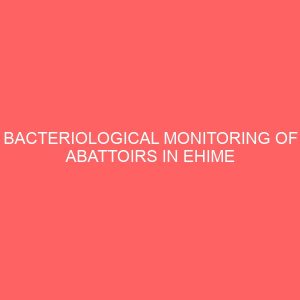Description
Abstract
This research is on Peter singers philosophical analysis on animal liberation. The research investigates the work of contemporary animal rights philosopher Peter Singer in addition to several historical figures whose writings have played important roles in the development of the modern animal rights movement. Specifically, this research work examines the influence of René Descartes and Charles Darwin on the present structure of animal rights theorizing. Its main intention in this respect is to give evidence of the way in which the modern movement for animal emancipation remains chiefly indebted to”moral extensions”, that is, granting animals moral warrants only to the extent that they are regarded as extensions of human beings. This research adopts the philosophical method of analysis and evaluation. However, this research work advances a more radical claim, namely, that animals are moral agents not simply because of the ways in which they are similar to people, but equally because of the ways in which humans and animals differ. The research work, therefore, incorporates Emmanuel Levinas”s ideas and combines them with concepts derived from philosophical biology in order to show several points of convergence. In so doing, the essay attempts to demonstrate that Levinas’s ideas about morality may lend themselves to an interpretation that shows that animals occupy a place in the moral realm. The only real way to protect animals is to assign them universal rights under the theoretical concept of justice observing animals’ rights seriously means that by virtue of their existence (selfhood) and sentience they possess these rights.








Reviews
There are no reviews yet.